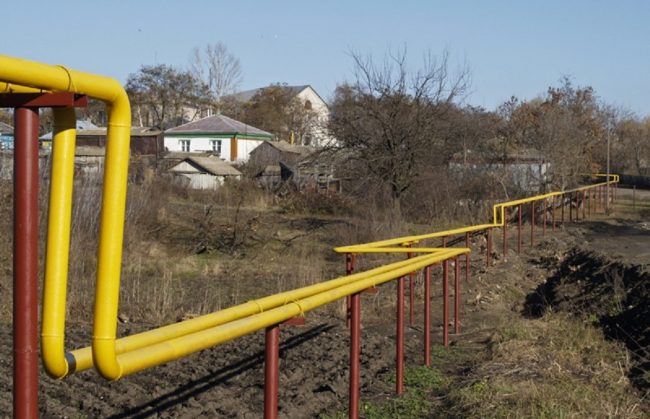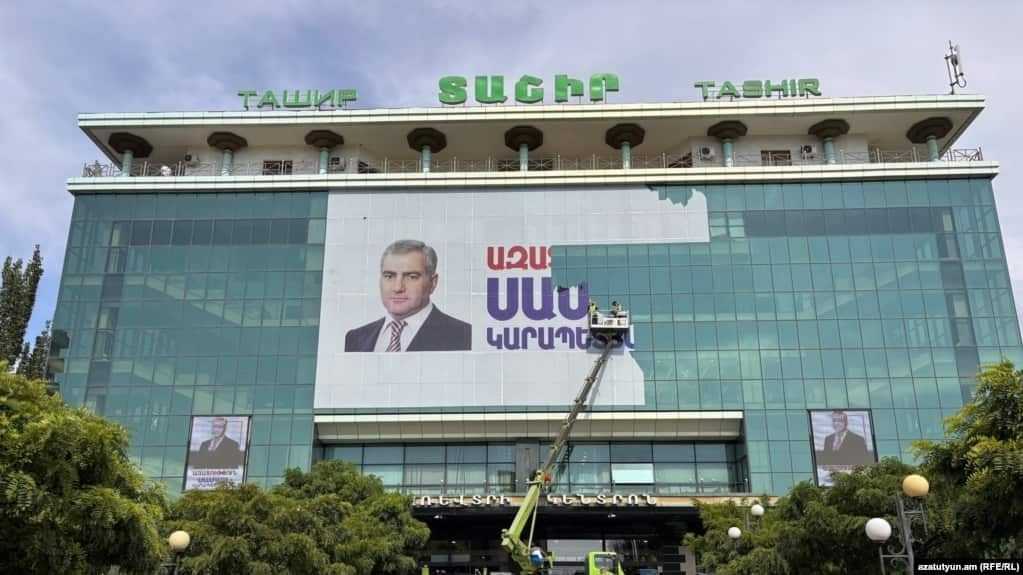

 Russia’s Minister of North Caucasus Affairs has accused the subjects of the North Caucasus Federal District of stealing gas and electricity and chronic non-payment. But many locals say the utility bills are beyond what they can pay.
Russia’s Minister of North Caucasus Affairs has accused the subjects of the North Caucasus Federal District of stealing gas and electricity and chronic non-payment. But many locals say the utility bills are beyond what they can pay.
‘In the first half of the year, the debt for electricity in the regions of the North Caucasus amounted to ₽27.5 billion ($420 million), for gas — ₽96.5 billion ($1.5 billion)’, Sergey Chebotaryov, the Minister of North Caucasus Affairs told news agency RIA Novosti on 2 October.
He said payment discipline should be strengthened with the help of local authorities and law enforcement agencies, and that worn out network infrastructure should be replaced.
‘In Chechnya, for example, all the power lines were built to be temporary — after the hostilities. They should have been replaced by permanent ones long ago, but they are still used’.
On 11 July, Russian Prime Minister Dmitry Medvedev accused local leaders in the North Caucasus of not fulfilling instructions previously given to them by the commission on the socio-economic development of the North Caucasus Federal District.
A recommendation was given to the heads of the North Caucasus regions to ensure ‘repayment of overdue debts’ to the subsidiaries of Rosseti and Gazprom, by selling grid assets to them at market value.
‘Allah gives us gas’
The total debt owed by Kabardino-Balkaria to Gazprom by the beginning of 2018 reached ₽12 billion ($183 million). As of December 2017, Karachay–Cherkessia’s debts to gas companies exceeded ₽2 billion ($30 million).
Marat Tlepshev, a journalist from Karachay–Cherkessia, expects that the collection of arrears for electricity and gas in Karachay–Cherkessia ‘will stumble upon sabotage and open discontent from the public, especially in rural areas’.
He told OC Media that due to high energy prices, ‘the majority of residents of Karachay–Cherkessia do not consider Gazprom or Rosseti as having the right to collect gas and electricity charges from them’.
He said people ‘see that gas officials and power engineers have the most luxurious cars, the most pompous and comfortable offices’, and that workers at the local Gazprom branch wear expensive watches, which is why people believe the state ‘robs’ people.
According to Tlepshev, local residents say ‘Allah gives us gas — why should we pay the state for this?’.
He says that gas and electricity inspectors repeatedly received threats when disconnecting non-payers. ‘An inspector I know who was openly threatened with a weapon by one debtor, said that soon [the inspectors] would work under the cover of the National Guard’.
According to Tlepshev, non-payers — as a rule, from rural areas — can run up debts of more than ₽1 million ($15,000) and continue using gas. He says that debts of ₽200,000–₽300,000 ($3,000–$4,500) are common in the villages.
Tlepshev says there are ‘technical and legal obstacles’ to disconnecting people. In order to do so, inspectors often need to enter private property, which is not possible without the owner’s consent or ‘a whole pile of documents and witnesses’.
Such methods, in his opinion, can provoke a public backlash.
‘They have now begun to lay gas pipes and electricity cables along the streets, within the reach of the inspectors. But this will take a long time and a large investment’, Tlepshev says.
The population has learned to cheat counters and inspectors
Alim, 36, owns a small construction business and lives in the village Chegem-II in Kabardino-Balkaria. He told OC Media that if he paid his gas and electricity bills, he would not have enough money to feed his family.
‘It’s around ₽15,000 ($225) a month. This is almost my entire income. And I have three children under the age of 12. It’s impossible to live like this. In our village, more than half the residents are debtors’.
According to Alim, people have learned to cheat the meters and inspectors. ‘Some install fake meters, others use neodymium magnets to falsify the readings’.
Alim says that while the utility companies have started producing new meters that are harder to tamper with, he is sure ‘inventive’ people will come up with new ‘countermeasures’.
Not ready to pay
A source in the Nalchik Heat Supply Company, which serves Kabardino-Balkaria’s capital Nalchik, told OC Media they do not expect a sharp increase in debt collection or payment discipline.
‘Increasing debt collection is of interest only to the top managers in Gazprom and Rosseti, in Moscow.’
The source said that the ‘middle management’ of these companies enjoy ‘good kickbacks’ from debtors for continuing to deliver services.
‘Roughly speaking, this middle management covers debtors and protects their interests in front of Moscow’.
‘Of course, draconian measures could achieve a temporary increase in collection and payment discipline, but for this you need a large and efficient apparatus and support of law enforcement agencies’, the source said.
Marat Tlepshev believes the authorities struggle against non-payment, widely seen as ‘unjustified’ by the public, has the potential to explode into popular discontent with the authorities.
According to Tlepshev, if Gazprom and Rosseti take direct control of their North Caucasian branches, this will not have any effect.
‘The public are not ready to pay such large sums for electricity and heating, and even more so they are not ready to pay the thousands in already accumulated debts.’
The Russian government’s plans to develop public energy consumption standards, speaks of the serious concern they have about the problem of non-payment. Under the plans, consumption beyond 300 kWh per month will be charged at a higher rate. In 2013, the government tried to carry out a similar reform but faced with opposition, the plan was postponed.








